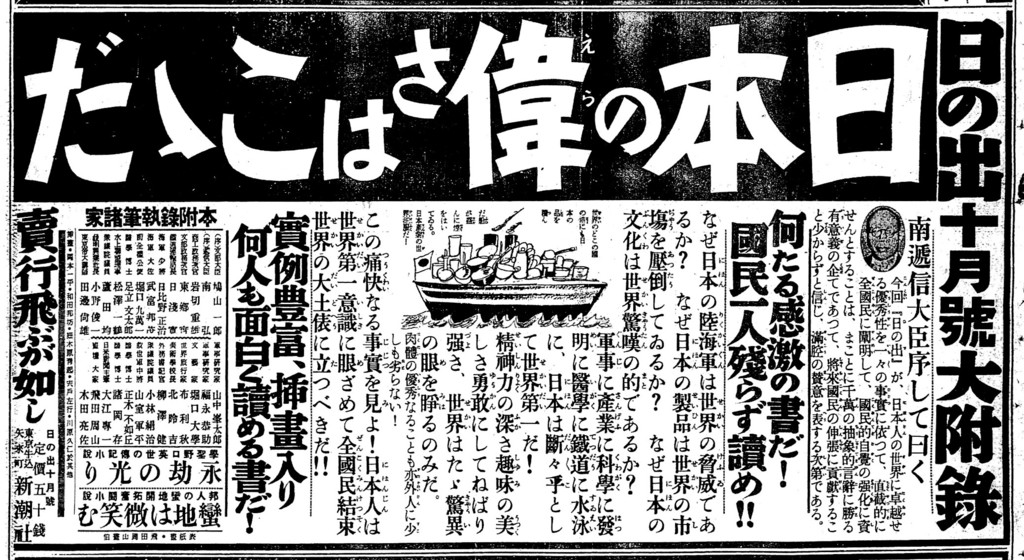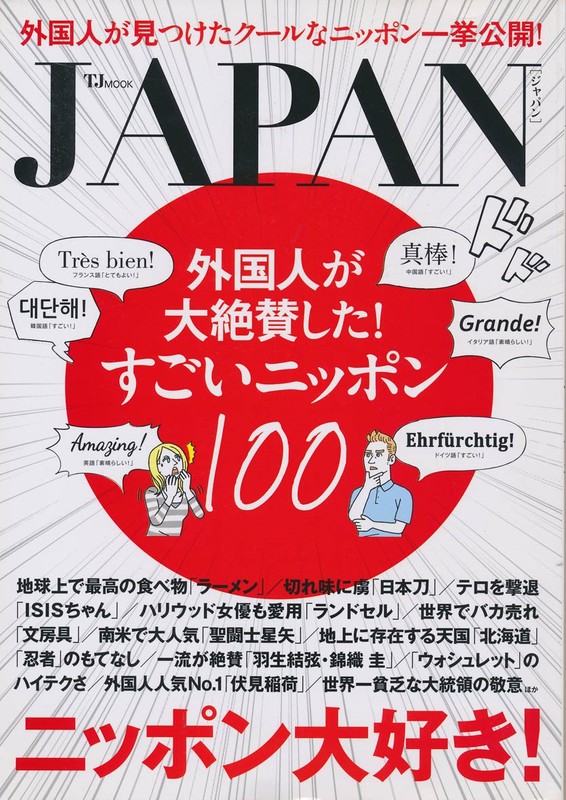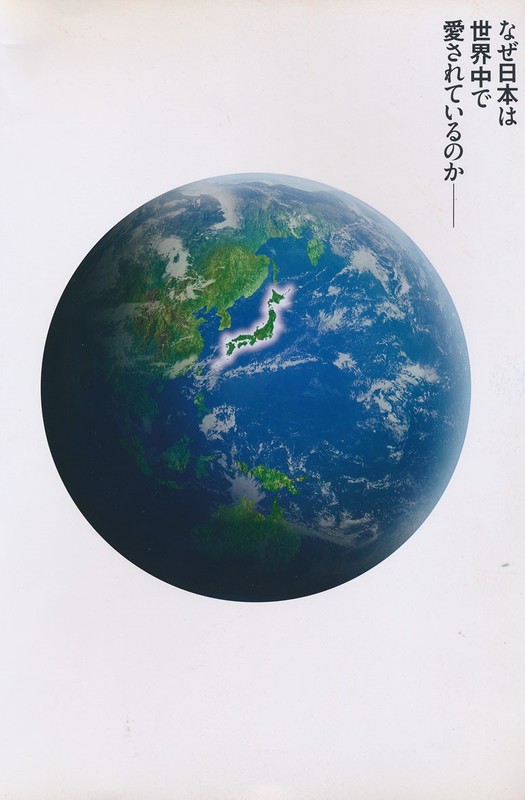Abstract:
A “Japan-Is-Great” boom sweeping the nation in recent years invites comparison with the comparable phenomenon in the 1930s at the height of empire. This increase in self-praise has not come about merely as a spontaneous reaction to the decline of self-confidence in the aftermath of the collapse of the bubble economy. The reassertion of national pride and identity by the Japanese has also been actively encouraged as healthy and desirable by the United States. As the Cold War came to an end, Washington pressured Japan to shake off its postwar self-constraints and project its influence and political power (even its military power) in international affairs more forcefully.
The original Japanese version appears at the end of this article.
Introduction
While it is important to note the eerie similarity of the “Japan-Is-Great” boom in the media today with that of the 1930s, as this article does, it also bears emphasizing that this is hardly a uniquely Japanese phenomenon. As the following article indicates, while the self-congratulatory praise of Japan by the Japanese media was temporarily dormant in the postwar period, it energetically re-emerged during the 1990s and since then, has become more and more vociferous. But this increase in praise has not come about merely as a spontaneous reaction to the decline of self-confidence in the aftermath of the collapse of the bubble economy.
The reassertion of national pride and identity by the Japanese has also been actively encouraged as healthy and desirable by the United States. As the Cold War came to an end, Washington pressured Japan to shake off its postwar self-constraints and project its influence and political power (even its military power) in international affairs more forcefully. This was demanded of Japan in order to make it better serve the goals of American foreign policy. (e.g. Michael Green’s “Japan Is Back: Why Tokyo’s New Assertiveness Is Good for Washington”).
In the United States itself, it has been pointed out that Ronald Reagan, as president between 1981 and 1989, ushered in a new era of patriotic language, including symbolically, the sign-off phrase “God Bless America” that has been standard presidential rhetoric ever since (See here). In Japan, Prime Minister Nakasone Yasuhiro, Reagan’s counterpart in the 1980s, gave new force to the nationalist cause, which included not only historical revisionism but also rearmament, by couching it in rhetoric of iconoclastic reformism that claims to confront postwar taboos, constraints, and conventions (See here).
To date, the discourses of right-wing leaders of both countries continue to echo one another. Donald Trum’s call to “Make America Great Again” was preceded by Abe Shinzo’s electoral slogan “Take Back Japan.” In his New Year Reflections in 2015, Abe reiterated his determination to “make Japan a country that once again shines on the world’s center stage”; then in 2016 he pledged, “This will be a year in which Japan truly shines on the world’s center stage”; and again in 2017 he reiterated that “we will hoist the flag of Proactive Contribution to Peace even higher and make Japan shine in the center of a worldwide stage.”
It matters greatly that Japan is not just “great” but that it is recognized as such by the world, and by the United States in particular. It remains to be seen whether Abe’s “patriotic” fervor will be deemed sufficiently supportive of US military goals in the eyes of Trump who declared his inauguration a National Day of Patriotic Devotion. Trump would certainly demand from the Japanese no less than Tokyo serving Washington’s interests first and foremost. NK
“Japan Is Great”
Once again this year television and books are filled with “Japan-Is-Great” praise. From traditional culture to high technology, everything is great. The special new years holiday programs that TV stations energetically promote make it possible to see Japan worship on parade. But wait a moment. What is waiting in line ahead of the self-intoxication? The other day in “Ranking of Japan in Terms of Broadcast Freedoms,” the reputation of Japan’s mass media continued to drop steadily. In wartime Japan, the “greatness of Japan that shines throughout the world” was emphasized and, not long afterward, that greatness collapsed. The “Great” boom is again divorced from reality. (Shirana Masakazu, Ikeda Teiichi)
On the evening of the 17th of December a four-hour special was broadcast: “The Japan that Surprised the World! That’s Really Amazing! A Group of Observers” (TV Asahi). Labeled as “Foreign Journalists Want to Tell the World! The Top 50 Great Things about Japan,” they introduced Japan’s trains, toilets, and vending machines.1 Such shows follow a typical pattern of Japan receiving praise from foreign people.
The show is always aired during a one-hour time slot on a Saturday evening. “Having newly discovered the ‘wonders of Japan and its uniqueness’ that even Japanese did not know about, this is a variety show that will make you love Japan even more.” The show is promoted thus. According to the Video Research Company (Bideo Risaachi Sha of the Kanto Area), the average ratings for this show are 12.9 percent, the seventh highest rating in the category of “Other Entertainment Programs after ‘Shōten’ (Nippon TV) and “Bura Tamori” (NHK).”2
During the new years holidays the “Great” programs are in full bloom. For 29 December, TV Tokyo has scheduled a three-hour special entitled “The World! Cheering on People Who Want to Go to Japan,” entailing close coverage of foreigners who adore Japan.3 On 3 January, a two and a half hour special by TV Osaka will be waiting for us.4 It is entitled “A Head Family, Japanese Style,” reaffirming what is good about Japan through culture and human feelings.
Japan worship has arrived in the world of publishing, too. In the Kinokuniya ranking of shinsho (small-sized paperbacks) in the last 30 days, eighth place is held by The Ministry of Finance and Leading Newspapers Have Concealed It: The Japanese Economy is Tops in the World (Kodansha).5 The eleventh-ranked book is Japan Just Like Switzerland: The Wealthiest Country in the World (also Kodansha).6 In November and December, books like this came out one after another, with titles such as Japan, Foreigners Cry Out with Admiration: The World Yearns for Nippon (Takarajimasha) and Why “Japanese are about Brand Value”: Why the People of the World Hanker after Japan (Koumyou Shisou Sha).7
Is the “Japan-Is-Great” boom the reverse side of society being closed and individual people blocked out? Does it show that the confidence of Japanese people has returned? Or is it a reflection of anti-foreignism and bigoted nationalism? According to the most recent “Japanese Consciousness” Opinion Poll (2013) conducted every five years by the NHK Broadcasting Culture Research Institute (NHK hōsō bunka kenkyūjo), the percentage of people who replied that “Japanese are extremely capable compared to the people of other countries” was 67.5 percent while those who thought “Japan is a first-rate nation” was 54.4 percent, an increase since the 2008 opinion poll.8
According to the analysis of Professor Oto Yoshihiro, scholar of media studies at Sophia University, “Japanese viewers choose programs that present Japan in a positive light, in the context of a closed society where individual people are blocked out.”
Elsewhere, Mr. Iwashita Yu, the secretary of “Booklovers against Racism” (whose name in Japanese is “Heeto supiichi to haigaishugi ni katan shinai shuppan kankeisha no kai” or the “Society for People in Publishing Who Do Not Engage in Hate Speech or Anti-foreignism”), traces the starting point for the “Great” Boom to March 11, 2011.9
“Japanese technology was dealt a severe blow by the Fukushima Daiichi nuclear disaster, but people did not want to forever be dragged down. Books spreading anti-Korean sentiment got their start then as part of a persecution complex. Criticism of Koreans poured out and books worshipping Japan became prominent through a reformulation of this criticism around 2015.”
Mr. Iwashita feels that a crisis is underway in which the mass media submerges itself in narcissism. “Their goal has become confirming what they want to be said. It is extremely dangerous that they cannot see themselves objectively.”
“The Flip Side of Not Having Confidence”
The media’s praise for Japan is not new.
Editor Hayakawa Tadanori, who is also the author of the book The Dystopia of “Japan Is Great”: the Genealogy of Singing One’s Own Praises in Wartime (Seikyusha, 2016), points out that “The expression ‘Japan-Is-Great’ has roots in the 1931 Manchurian Incident.”
Given impetus by the Manchurian Incident [in 1931], the Japanese Government worsened its isolation from the international community by such actions as the 1933 withdrawal from the League of Nations and setting out a comprehensive framework of government centered around the emperor. Mr. Hayakawa writes, “With the mass media of the time beginning to suspect that the next trend in Japan would be Japanism, it proceeded to spew out PR publications emphasizing that “Japan, the country of the gods, is great!”
When we look at titles in magazines, books, and the like, we find a kind of glorification that is embarrassing:
“What is great about Japan is this…”
“A Study of the Greatness of the Japanese”
“The Rise of Japan, Empire of Genius”
“A Declaration of Japanism”
Just as in the recent boom in “Japan-Is-Great,” examples of foreigners extolling the virtues of Japan were especially popular. In 1938, when the Nazi Youth Movement “Hitler Youth” came to Japan, their use of such expressions as “We have experienced the beauty of the Japanese spirit” was widely reported. Hayakawa explains that, “It’s possible that such things sold well because readers wanted confirmation that they were living in a great country. There were some scholars who were critical of Japanism, but critical voices were shut out of the marketplace because this Japanist mood had become so strong—a mood forged through a unity of government and people. We can say with some certainty that this was caused by Japan’s being thrust into World War Two.”
|
Advertisement for the magazine, Hinode (Rising Sun) that appeared in Tokyo Asahi Shimbun, dated September 7, 1933 (Provided by Hayakawa Tadanori) |
“The Rising Sun” Here is what is great about Japan
What an impressive book! Every single citizen of the Nation, read it!
Why is it that the world is in awe of the army and navy of Japan? Why do Japanese products dominate world markets? Why is Japanese culture the object of world admiration?
How is it that Japan has gradually and firmly become number one in the world in military affairs, industry, science, innovation, medicine, and railroads?
The depth of its spiritual power, the beauty of its arts, its gallant tenacity… the world only looks on with wonder and eyes open wide.
[In small print the following] The excellence of their physique, too, is a match for that of foreigners!
Look at these thrilling facts! Japanese must wake up to the awareness of being number one in the world, and all the nation’s people must unite and stand on the grand world arena.
As a consequence of losing the war, the “Japan-Is-Great” trend passed and even during the period of rapid economic expansion of the 1960s it did not rear its ugly head. On the other hand, in the 1990s when the bubble economy collapsed, the ideology of “Japan-Is-Great” returned. According to the previously mentioned NHK study, this overlaps with a period when the percentage of people who believed that “the Japanese people have superior qualities” remained low. Mr. Hayakawa views the mass media as rallying behind politicians who wave the flag of “Take back the pride of being Japanese.”
“The beautiful country” rallying cry was repeatedly invoked under the first Abe administration in 2006. Furthermore, “Publications emphasizing patriotism began pouring out once again” due to the inclusion of “patriotism” in the revised Fundamental Law of Education. (Hayakawa)
|
JAPAN: Rave Reviews by Foreigners! Great Japan 100 (Takarajimasha 2015) Provided by Hayakawa Tadanori. |
JAPAN: Rave Reviews by Foreigners! Great Japan 100 (Takarajimasha 2015)
|
Next to a photo of a globe is written “Why is Japan loved all over the world?”
Certainly now, under the Abe Government, the “Japan-Is-Great” boom is sweeping over Japan. However, if we look out on the world we find that poverty, the deepening of class inequality, and the meandering nature of Abenomics have, on the contrary, led only to talk of Japan as “not being great.”
Speaking of the media problem, their imperfect mechanism for the oversight of political power has long been screamed about. According to a ranking of press freedom by the international NGO Reporters Without Borders, while Japan had been ranked number 11 in 2010, year by year its ranking has fallen.10 In 2015 it was in 61st place and this year it has sunk to 72nd place.
According to the analysis of Professor Nakano Koichi of the Civil Alliance for Peace and Constitutionalism (“Anpo hōsei no haishi to rikkenshugi no kaifuku wo motomeru shimin rengō”), a professor of political science at Sophia University, “The economy of Japan continues to be in recession, its GDP has been overtaken by China, while its per capita GDP has been overtaken by Korea.11 The flip side of being a country which has a complex about confidence is that words that are comfortable to hear are frequently made too much of.” Through his analysis Professor Nakano has aimed a spear at the heart of the Abe administration.
“The Abe government’s repressive stance leading to repeated ‘steamroller-voting’ in the Diet continues to undermine the dignity of the citizens. If we could become a nation that thought about each and every person, we could put an end to the sobriquet ‘Japan-Is-Great.’”
Last year, the National Institution for Youth Education (Kokuritsu seishōnen kyōiku shinkō kikō) publicly announced the results of a survey in which 72 percent of high school students agreed with the statement “I sometimes think I am a useless human being.”12
When young people’s self esteem is so low, simply parroting “great” is superficial. Professor Nakano warns us, “Accepting our weaknesses and limitations is paramount. Yet, averting our eyes from our true nature, we have somehow ended up with a society that is neither wonderful nor easy to live in. The first thing we must do is to change our politics.”
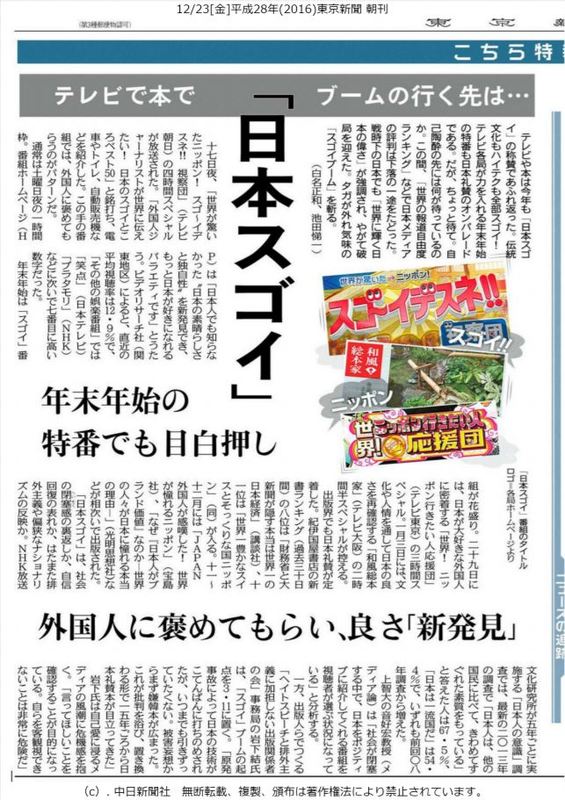 |
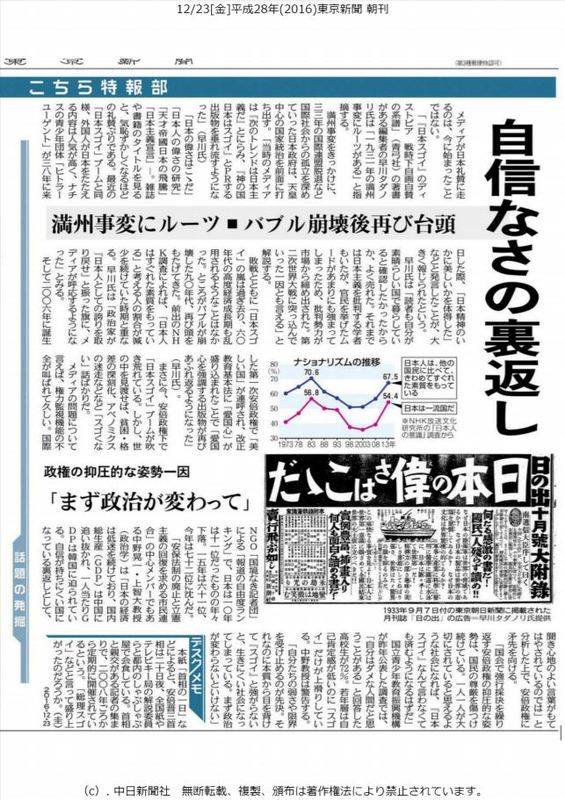 |
This article appeared in Tokyo Shimbun, Dec 23, 2016.
Related articles:
Nakano Koichi, Contemporary Political Dynamics of Japanese Nationalism
Mark Mullins, Neoliberalism, Religion, and Patriotic Education in Post-disaster Japan
Sven Saaler, Nationalism and History in Contemporary Japan
Akiko Takenaka. Japanese Memories of the Asia-Pacific War: Analyzing the Revisionist Turn Post-1995.
Notes
On “Shoten” see here Morita Kazuyoshi (森田 一義) is one of the main attractions of “Bura Tamori.” He is a Japanese television celebrity known by his stage name Tamori (タモリ: an anagram of his surname). Information about him here.



